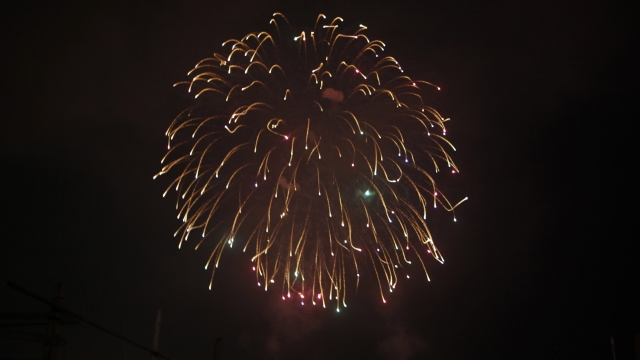Those colorful firework pops are a Fourth of July staple for many. And with those pops, come the loud bangs.
The American Academy of Audiology says repeated sounds above 70-80 decibels can cause damage to your hearing. The higher you go in decibels, the less time it takes to do damage. Fireworks and firecrackers can hit volumes of 150-170 decibels.
"When you think about any time you need to raise your voice to speak over someone or to over the background noise, it's potentially damaging to your hearing," said Carla Pielmeier, an audiologist who has cared for patients for nearly four decades.
In the cochlea part of the inner ear, small hair cells are crucial to hearing. The hair cells move with the percussion of sound, but when the decibels are too high, the hair cells flatten.
"They no longer are there to provide that stimulation to the brain. So you can't hear — you might hear muffled, you might be missing certain sounds that you used to be able to hear in the past. There's a lot of research right now in hair cell regeneration. But at this time, once they're done, they're done," Pielmeier said.
SEE MORE: Why the Fourth of July is the most dangerous day for your phone
That can lead to hearing loss, tinnitus, buzzing or ringing in the ears.
Some tips from audiologists to protect your hearing this Fourth of July:
- Opt for professional fireworks displays first. With those, you're generally distanced from where fireworks are lit. Some now even use quieter drones.
- If you're going to see private fireworks at someone's home, the farther you're away, the better: Adults should stay about a school bus's length away; children should be at least the length of an Olympic size pool away.
- For the best protection, consider muted or protective earmuffs or ear plugs with a noise reduction rating of 27 or higher.
Above all, if you start to have pain, buzzing, or continued muffled sounds days after fireworks, it could be a sign of hearing loss. Experts say consider calling your doctor or pediatrician. They can conduct an initial screening for damage and get you to a hearing specialist if needed.
Trending stories at Scrippsnews.com




